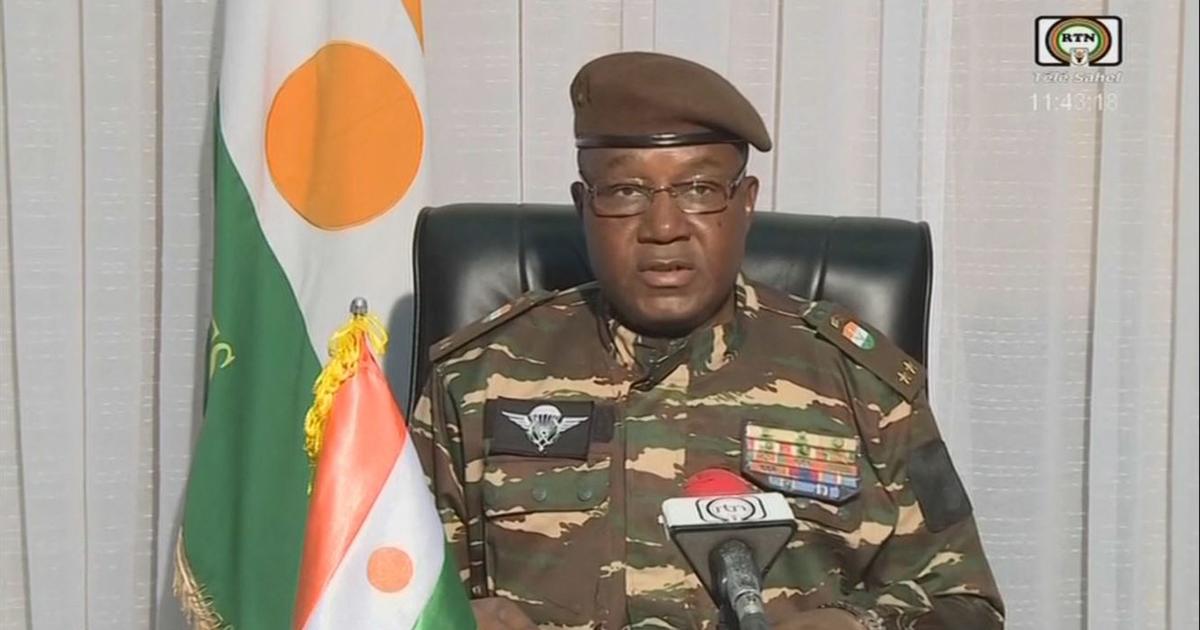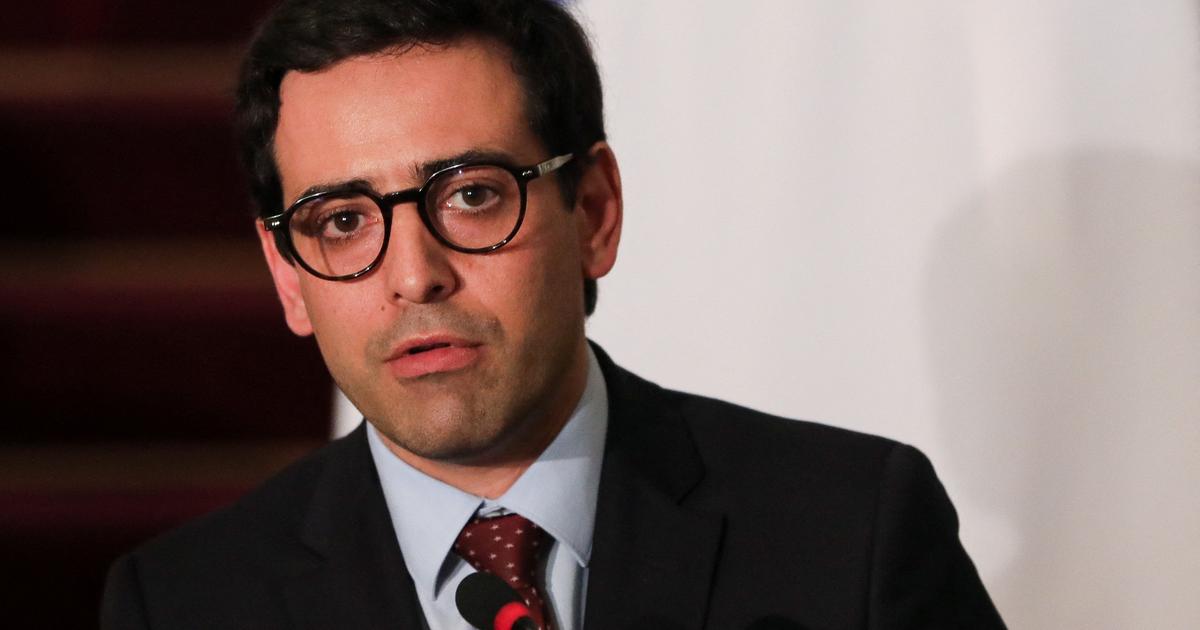A French soldier from Operation Barkhane during a control mission in Ndaki, Mali, on July 27, 2019.Benoit Tessier / Reuters
The reduction of French troops in the Sahel, which will lead to a reduction of 40% of its 5,100 soldiers on the ground from 2022, has led to concern in this region of Africa hit like few others by jihadism, with more than 2,300 dead so far this year according to figures from the NGO Acled.
Although this is not a total withdrawal and France will continue to play an important role in the Sahelian counter-terrorism fight, the fear that armed groups linked to both Al Qaeda and the Islamic State will reorganize and become even more operational by taking advantage of the decrease in the French military presence spans Mali, Burkina Faso, and Niger.
A kind of Afghanistan syndrome runs through the Sahel.
More information
47 people killed in Burkina Faso after a jihadist attack on a convoy of civilians
Former Chadian dictator Hissene Habré dies in Dakar from covid
Although the calendar and details of the end of Operation Barkhane are not completely closed, French President Emmanuel Macron himself gave some indications at a press conference in mid-July: it will go from just over 5,000 troops to 2,500 and 3,000 and the headquarters so far located in N'Djamena, the capital of Chad, will be closed.
The idea is to keep the information brigades and special forces operational, above all.
"We have no vocation to stay forever in the Sahel," said Macron himself.
Behind this reduction of troops there are multiple factors. In the first place, the attrition after eight years of a deployment that has killed 55 French soldiers and has not been able to offer a clear victory against the advance of a jihadism that hits with extreme violence. If a part of public opinion and the French political class increasingly question this presence - a key issue with the presidential elections just around the corner - anti-French sentiment grows in the Sahelian countries. In recent months, two events have accelerated withdrawal plans: the double coup in Mali and the death in combat of Chadian President Idris Déby, one of its last great allies in the region. The instability and lack of legitimacy of both regimes do not help.
In an attempt to reassure his African partners, the French Army Chief of Staff, General Thierry Burkhard, traveled to Chad, Niger and Mali this weekend with the message of the continuity of the French military commitment in the region. To compensate for Barkhane's troop reduction, the French Armed Forces spokesman assured, there is Takuba, a European support force created in 2020, and with greater involvement of the national armies. But this is where the doubts arise.
"Barkhane has been key in the fight against terrorism, his ability to hit terrorism is unquestionable and he is going to leave a great void that it is not clear who will fill it," says Marc André Boisvert, a specialist in military matters for the Sahel.
The refusal of countries such as Germany or Spain to contribute troops on the ground to the Takuba operation
and its small size for now, just 700 soldiers of which half are still French and the rest, especially Swedes, Italians, Estonians and Czechs, raises uncertainty about their real capacity, according to Boisvert.
"At the moment Takuba is unable to replace Barkhane," he says.
Join EL PAÍS now to follow all the news and read without limits
Subscribe here
Is an Afghan scenario feasible?
For Ornella Moderan, an expert at the Institute for Security Studies (ISS), of course not.
“France is not leaving the Sahel, it is only resizing its presence, there is a logical evolution as occurred with the transition from [Operation] Serval to Barkhane
in 2014. Even if he decided to withdraw altogether, which is not the case, he would do so progressively and in a very long term ”.
In Boisvert's view, the armed groups in the Sahel cannot be compared to the Taliban.
"These have been in power for several years and are cohesive, while here the different factions do not understand each other," he explains.
However, Bakary Sambe, head of the Timbuktu Institute, believes that the events in Afghanistan are a dangerous precedent. “The fires of the Western fight against jihadism are going to subside. So many years of effort and now everyone is wondering what they have been for. What's worse, there is a question of credibility on the table. France is radically opposed to dialogue with the jihadists in the Sahel, but now negotiates and talks with the Taliban, who have also broken a psychological limit proving that an Islamic state, such as the one that the jihadists in Mali intend to create, is totally possible ", comments.
Where all the experts agree is on the weakness of the national armies to face the jihadist challenge without external military support.
"The Malian Army has made little progress, but there is a lot of work to do," says Boisvert.
Some of these advances are attributable to the EUTM European training mission, present since 2013 and in which Spain participates decisively, but there are doubts about its effectiveness.
"Each European country comes from a different military doctrine and that is one of the explanations for the failure of EUTM to reform an Army that still does not operate in a cohesive manner," says Moderan, who fears that Takuba
can make the same mistakes.
For Boisvert, it takes more time for the changes to be visible and wide enough.
EUTM plans to expand to Niger and Burkina Faso.
The Armed Forces of the latter country, which have not quite overcome the wound of the deep division of the 2014 uprising, have given a lot of ground to the jihadists and only the Nigerian Army seems to show signs of resisting their attacks.
"But even in this case the challenges it faces are enormous because the threats are multiplying across all its borders," concludes Moderan.
The coordination efforts of these three countries together with Chad and Mauritania, which resulted in the creation of the G5 of the Sahel, have not yielded the expected results either.
Last week the defense ministers of this body met in Niamey to review their strategies in the face of the end of Barkhane
and they decided to intensify joint operations and focus on the Three Borders area, between Burkina Faso, Niger and Mali.
However, a problem persists. The Malian military regime, which promised to hold presidential elections in February 2022 to restore power to civilians, appears incapable of fulfilling this commitment. "The planned schedule is presented as unsustainable at this time," says Sambe. Regional mediator Goodluck Jonathan visits Bamako this week to put pressure on the coup leaders led by Assimi Goïta. But while the Malian regime's lack of legitimacy erodes the joint response to jihadism, the terrorists show, week after week, their ability to kill with constant attacks on military units and the civilian population. The end of Operation Barkhane, the only military force that has been able to achieve limited objectives in this combat, opens up a scenario full of unknowns.
Follow all the international information on
and
, or in
our weekly newsletter
.

/cloudfront-eu-central-1.images.arcpublishing.com/prisa/VF7PD5I4YBBY7GF2CO3V2D7XME.jpg)










/cloudfront-eu-central-1.images.arcpublishing.com/prisa/KMEYMJKESBAZBE4MRBAM4TGHIQ.jpg)


